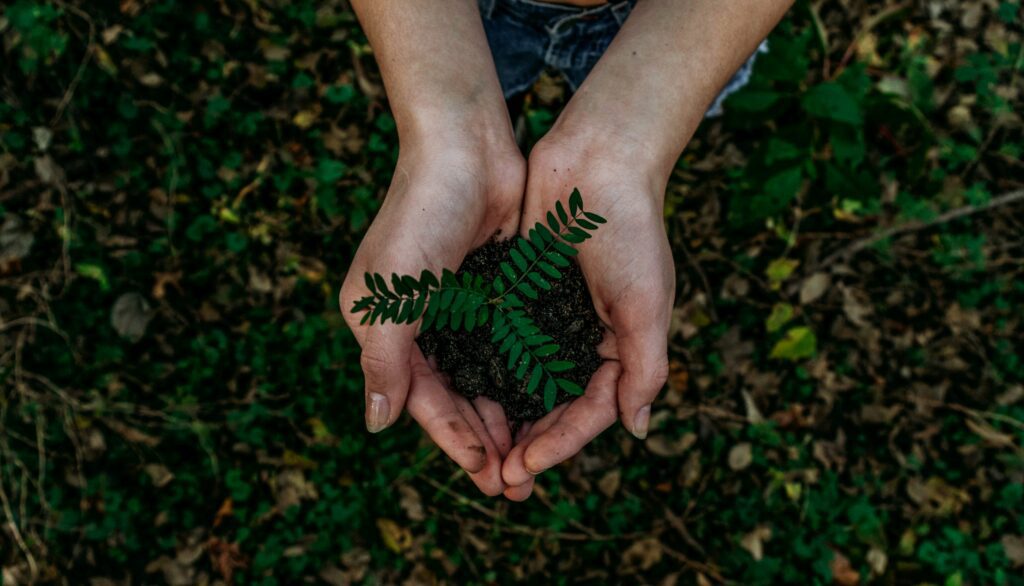Every year since 1948, on April 7th the World Health Organisation (WHO) celebrates World Health Day in an attempt to bring awareness to a particular global health issue. I can’t help but think that they must’ve felt very spoilt for choice earlier this month. Previous years have focused on topics such as health equality, depression, and diabetes. This year’s theme is a big one: “Our planet, our health”.
It’s hard for me to know where to start with such an all-encompassing topic of health, but it doesn’t feel right to recognise World Health Day without mentioning the health emergency that just 2 years ago led to lockdowns across the globe. Throughout the COVID-19 pandemic, many people have been forced to deal with a reality they never thought possible. Each of us has been impacted by the pandemic, whether that be through loss of loved ones, financial insecurity or increased social isolation. Despite this, I’ve noticed many positives throughout the pandemic. In the early days of lockdown, I was in awe of the 436,000 NHS volunteers who risked their health to ensure the safety of vulnerable people, despite uncertainty about the virus being at its height. On top of this, several vaccines were developed in record-breaking time,1 a huge triumph for the scientific community. To me, this is proof that when people work together we can achieve things thought to be impossible.

According to the latest Intergovernmental Panel on Climate Change (IPCC) report, it is “almost inevitable” that temperatures will rise above the 1.5°C aim agreed in the Paris Agreement, resulting in irreversible climate breakdown.2 It’s estimated that half of the global population live in areas “highly vulnerable” to climate change even at current levels of heating, and mass die-offs of species are already under way.2 We have a colossal challenge on our hands if we want to prevent a catastrophic global health crisis. It is a challenge that is going to require individuals, organisations, and governments to work together to find a solution. Although the data are clear and it’s easy to feel overwhelmed, it’s important to remember what can be achieved when humans work together, as demonstrated by our response to the pandemic. We all have our part to play and we have to work together.
The environmental benefits of the pandemic give us a unique insight into the types of things we need to do to curb carbon emissions; fewer people driving to work or flying overseas for business meetings or holidays meant that global carbon emissions fell by 8.8% in the first half of 2020.3 Naturally, as vaccines allowed us to return to ‘normal’ and restrictions were eased, carbon levels started to rise again to pre-pandemic levels.4 However, this does not mean that all progress is lost. More organisations have learned to adopt more flexibility when it comes to working from home, and platforms such as Zoom have retained a large customer use for business meetings.5 Throughout the areas of my life, I am hearing more people talk about what they are doing to reduce their carbon footprint, which fills me with hope. A shift in what’s ‘normal’ is exactly what we need to improve the health of our planet, and to ensure the safety and survival of generations to come.
At Makara, we are constantly adapting to new challenges and seeking innovative solutions. When it comes to the turbulent times of the pandemic, with an existing home-working structure in place and a holistic approach to employee health and wellbeing, Makara was well equipped to deal with the challenge. As a reputable and rapidly growing company, we have a respectable sphere of influence within the healthcare industry. I am proud to see initiatives such as the virtual forest, where hundreds of trees will be planted by Makara to support the health of the planet and increase awareness of this important issue. Continuing efforts such as these will have both direct and indirect environmental benefits, as we encourage and inspire each other to think more proactively about the environment.
The WHO has produced a really informative and inspirational video for World Health Day that I’d highly recommend giving a watch: https://www.youtube.com/watch?v=9HV4hkX5NxI or you can read more here: https://www.who.int/campaigns/world-health-day/2022#
If you want to read more about how you can further help the environment, Imperial College London have put together a useful guide: https://www.imperial.ac.uk/stories/climate-action/
References
- Brothers W. A Timeline of COVID-19 Vaccine Development. BioSpace. 2022 [cited 5 April 2022]. Available from: https://www.biospace.com/article/a-timeline-of-covid-19-vaccine-development/
- Intergovernmental Panel on Climate Change. Climate Change 2022: Impacts, Adaptation and Vulnerability. 2022. Available from: https://www.ipcc.ch/report/ar6/wg2/
- Liu Z et al. Near-real-time monitoring of global CO2 emissions reveals the effects of the COVID-19 pandemic. Nature Communications. 2020;11. Available from: https://www.nature.com/articles/s41467-020-18922-7
- Tollesfson J. Carbon emissions rapidly rebounded following COVID pandemic dip. Nature.com. 2022 [cited 5 April 2022]. Available from: https://www.nature.com/articles/d41586-021-03036-x
- ‘This Could Have Been a Zoom Meeting’: Companies Rethink Travel. Nytimes.com. 2022 [cited 5 April 2022]. Available from: https://www.nytimes.com/2021/07/31/business/business-travel.html





